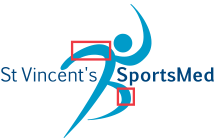Patient Journey
- Consultation
- Understanding options
- Treatment plan
- Surgical and Non-Surgical Treatment
- Recovery
- Post-Operative care plan
Consultation
Your doctor will ask detailed information about your symptoms and history of your current and past ailments and perform a thorough physical examination. Certain diagnostic tests such as blood tests or imaging tests may be ordered to confirm your condition. After reviewing these results, your doctor will recommend appropriate treatment.
It’s not uncommon to have questions or doubts, which we will encourage you to clarify before you leave the clinic. Your doctor will take time to explain your options for treatment and our staff will go through the details of costs; and logistics with you. Our aim is to provide you with all the information that you would need to make informed decisions about managing your health. If you still have questions when you leave the office, please do not hesitate to contact us we are here to help.
Treatment plan
Timely and accurate diagnosis is the key to gaining optimal results from the treatment plan. When you present to the clinic with pain or other symptoms of injury, your doctor will review your medical history and perform a thorough physical examination with palpitation, observation of gait and with certain movements and rotations encouraged by your doctor. These will provide information about posture, gait, localization of indistinct symptoms, extent of range of motion and muscular strength.
Following this, your doctor may order imaging studies such as bone scans, CT scans, CT arthrography, MRI scans, MRI arthrography or sonography, to view the injury and disease more clearly and confirm on the diagnosis.
Post-Operative care plan
During your early post-operative period your surgeon will provide you with the appropriate medication and care needed for your recovery. In the early postoperative period following a joint replacement surgery your active involvement is necessary for a quick and successful recovery.
Day of surgery
You will remain in the recovery room for two hours for monitoring after your surgery and then be transferred to your hospital room.
Incision Care
There will be a sterile dressing over your surgical wound. Your wound dressing will be changed regularly and removed about a week after surgery. Depending on the suture material used, the sutures may either be removed or left in situ to be gradually absorbed. You need to keep your wound clean and dry. You can usually use the shower the day after surgery.
Medications
Your surgeon will prescribe pain medications to ensure your comfort after surgery. To protect the implants from infection, you will be prescribed antibiotics. You may also receive a blood thinner for 2-3 weeks to reduce the risk of clot formation after your surgery.
Physical therapy
Walking is important to your recovery and you are encouraged to walk the day of your surgery. Your physical therapist will teach you specific exercises to strengthen your new joint and restore its range of motion. You will also be advised on a home exercise program after your discharge from the hospital.
Follow Up
You will be advised to make a follow-up appointment with your surgeon to check on your progress after your discharge. You should see your surgeon at regular intervals for follow-up examinations.
If there are any queries or concerns, please consult your surgeon.










